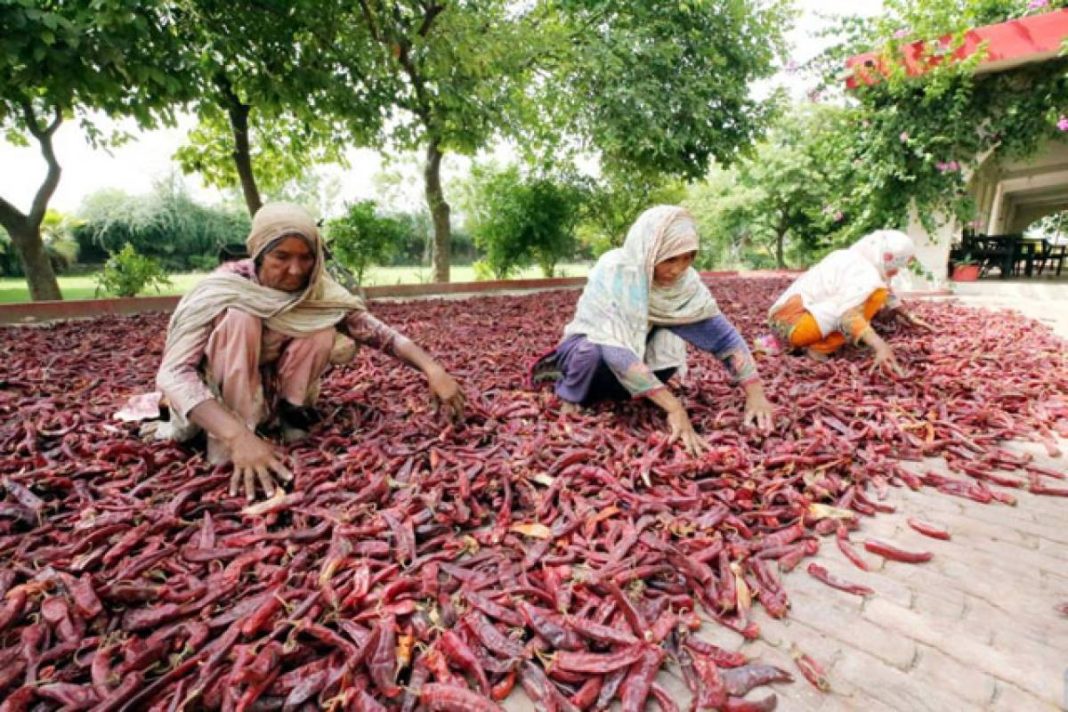BEIJING: With deepening bilateral collaboration in the chilli industry, the sector in Pakistan will continue to thrive and expand steadily, which will also pave the way for the flourishing pepper trade with China.
Pakistan is the fourth largest chilli producer globally, with 150,000 acres of farms yielding 143,000 tonnes annually. This remarkable production capacity positions Pakistan favourably in the global chilli market.
At the same time, China’s soaring demand for dry chilli, surpassing 200,000 tons annually, presents a significant opportunity for Pakistan to tap into a lucrative market and expand its pepper exports. The China-Pakistan Chilli farming project, a crucial component of the China-Pakistan Economic Corridor, can serve as a great example. Spanning 16,000 acres of chilli farming land, the project adopts an order-based contract farming model.
The program has successfully trained over 1500 agricultural technicians in Pakistan, which led to a 100,000 Pakistani Rupee increase in per-acre output, reaching three times the unit production value of traditional crops, China Economic Net (CEN) reported. Awis Mir, CEO and Founder of DEA Group of Companies, explains the benefits of collaborative partnerships, stating, “Chinese companies are not only providing technical support and guidance for seedling cultivation, field management, harvesting and drying of chilli pepper, but also establishing a system that connects Chinese buyers with guaranteed demand.”
This system creates clusters of buyers, including state-owned enterprises, streamlining the supply chain and ensuring market access for Pakistani chilli exporters.
As a significant milestone in the project’s progression and Pakistan’s agricultural exports, the first consignment of Pakistani chilli was shipped to China earlier this month. Despite its great potential and remarkable advancement, the chili industry in Pakistan still faces challenges. According to the Trade Development Authority of Pakistan (TDAP), Pakistan exported 2,751 tons of dried red chilli peppers in 2019, which decreased to 1,665 tons in 2022. “The severe flooding in these years has adversely affected chilli production within the country.
There are also problems in the drying process as well,” remarks Muhammad Irfan, Trade and Investment Counselor of the Pakistan Consulate in Guangzhou. “To solve the related problems, Pakistan and China have signed Memorandums of Understanding (MoUs) and agreements. Pakistan, in particular, is offering land with preferential policies, especially in areas prone to floods, as part of their efforts to support the chilli industry and mitigate the impact of climate change,” Irfan added. –Agencies





